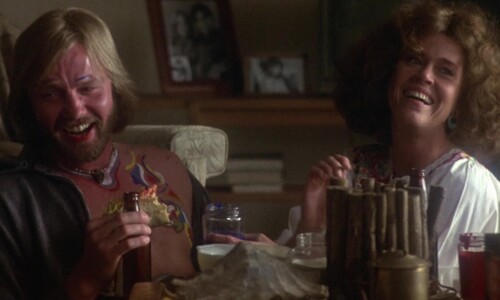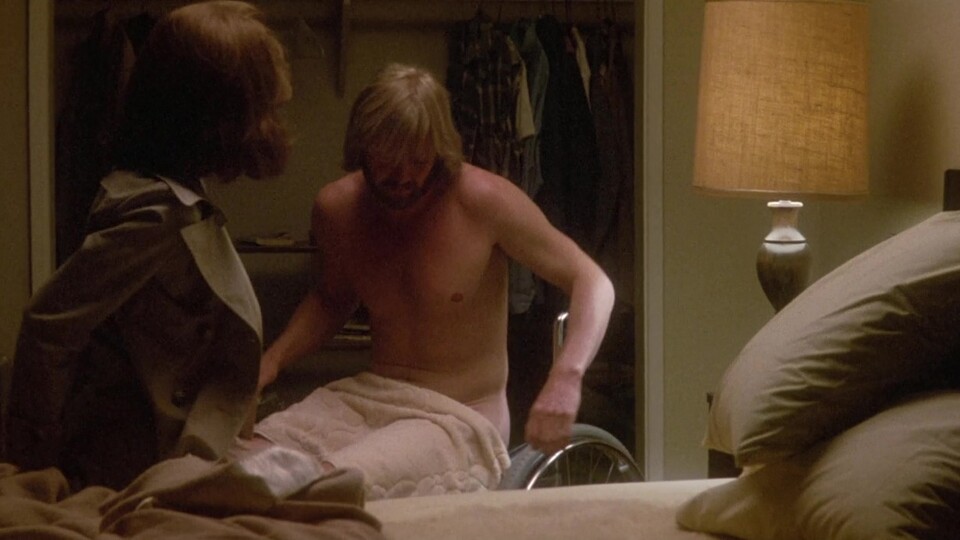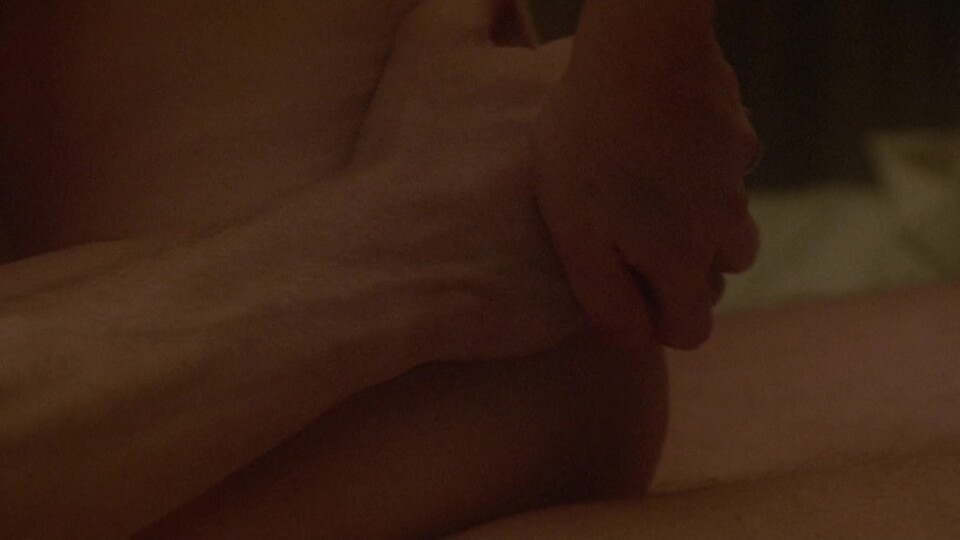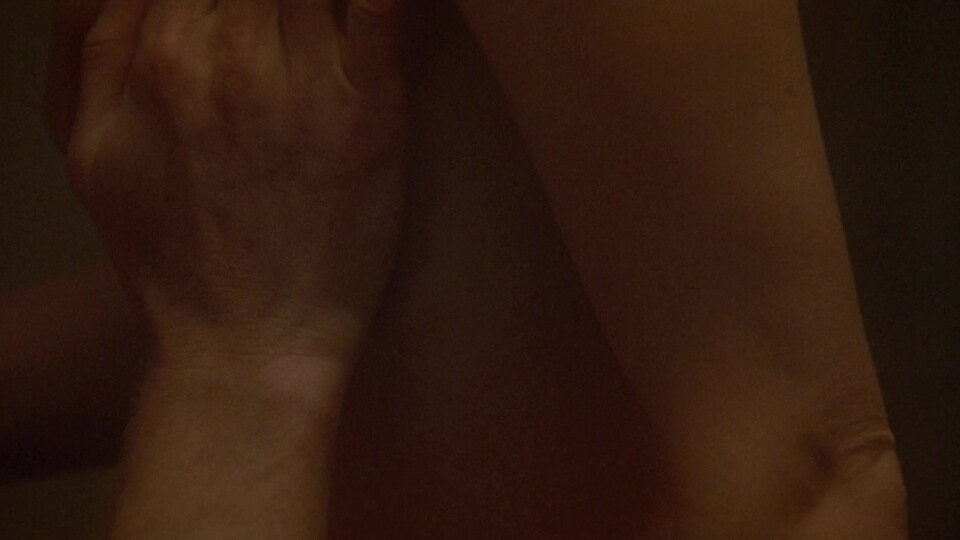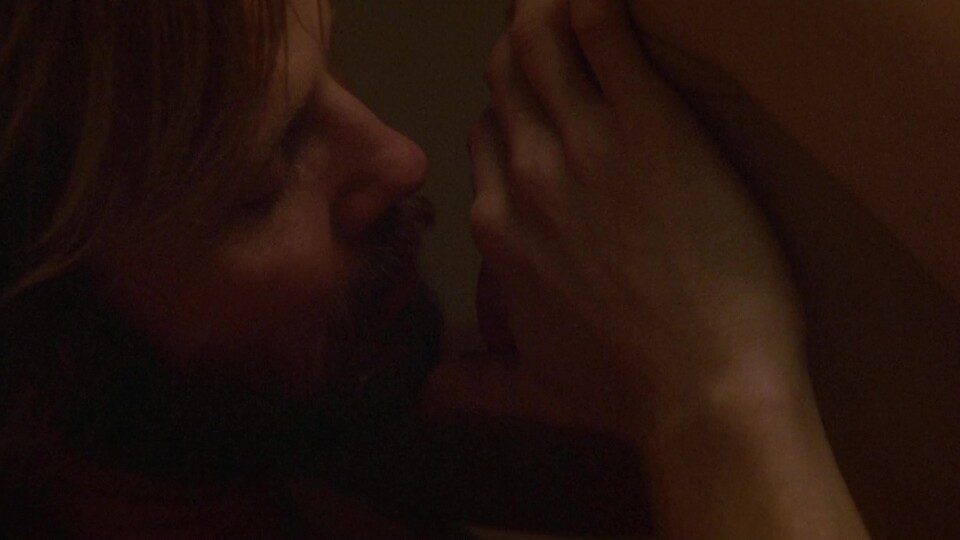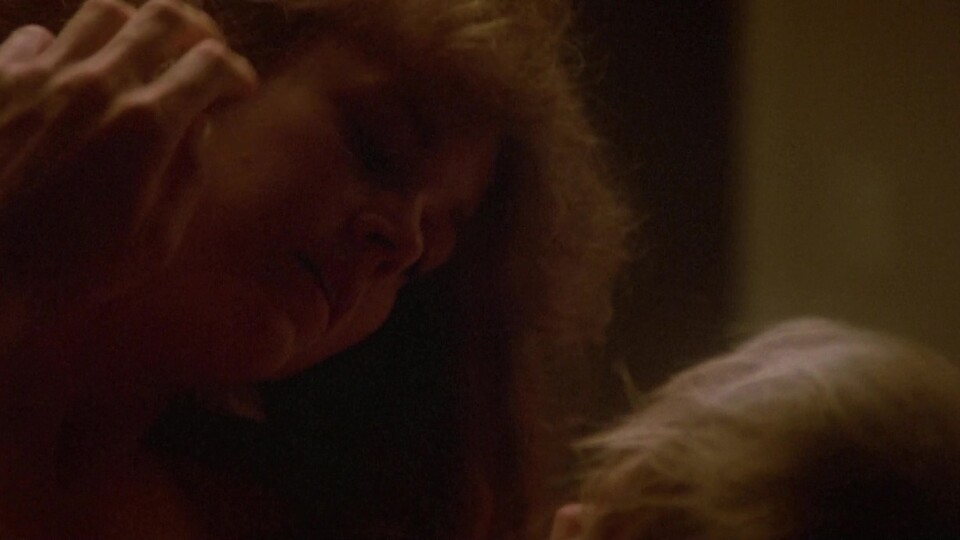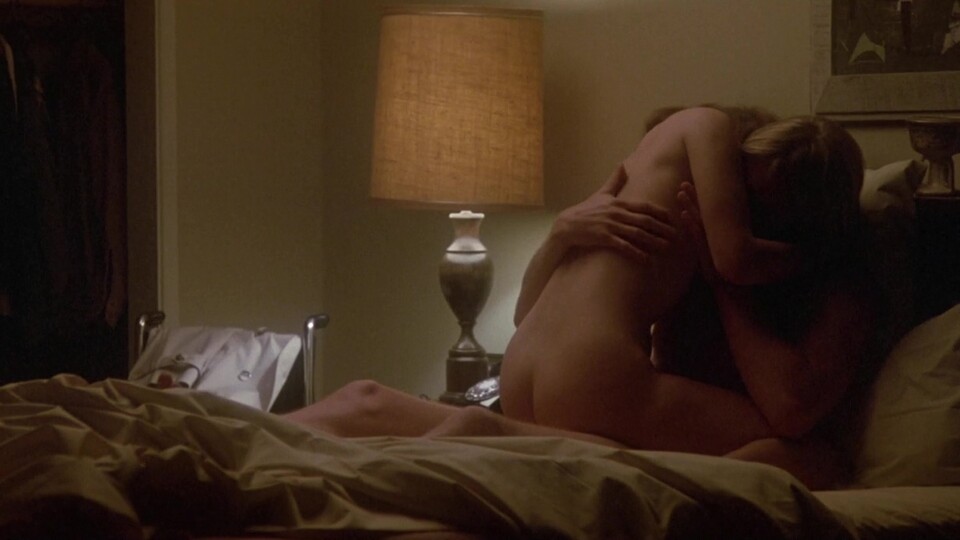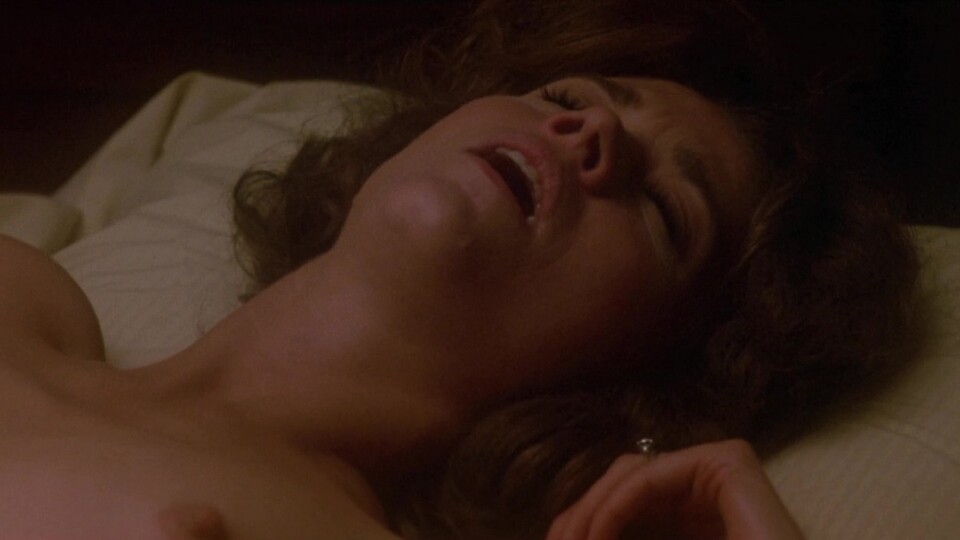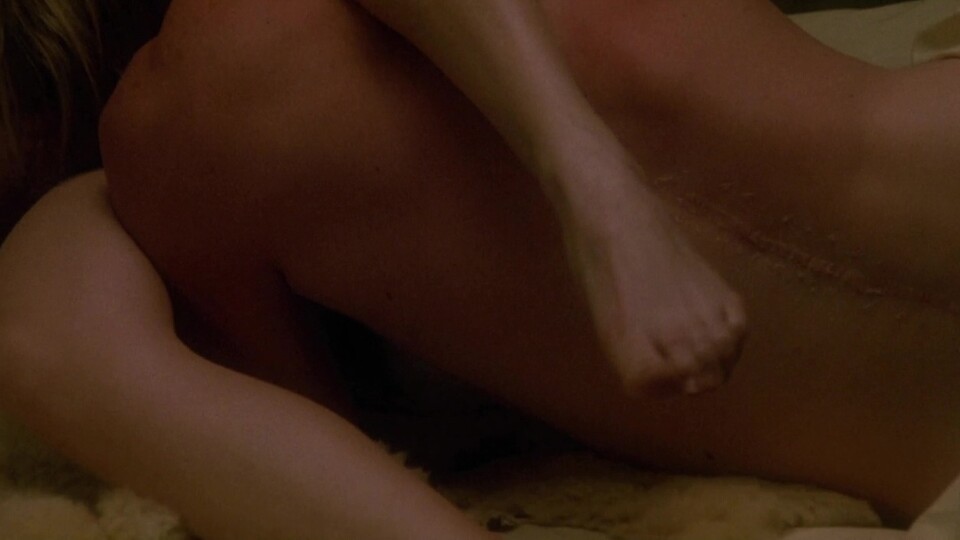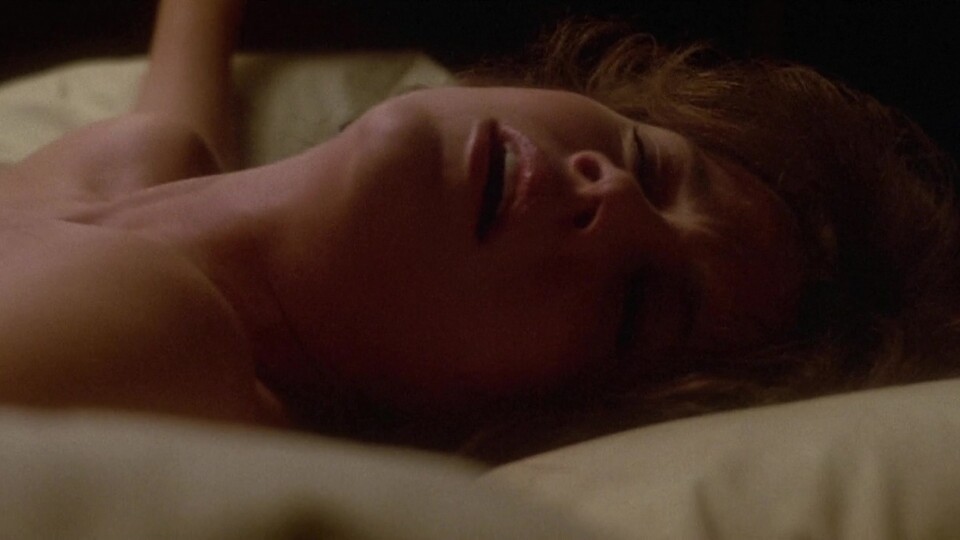Coming Home has one of the most extraordinary "meet cute" scenes in the history of the romantic film. The "meet cute" is one of those conventions in scriptwriting that claims that a successful relationship plot requires the characters to meet in an original, interesting way. In Lubitsch' Bluebeard's Eighth Wife it's buying two different sections of a pyjamas. In Ashby's film, Sally (Jane Fonda) stumbles into stretcher-bound, paraplegic Luke (Jon Voight) bursting his urine bag. Original. And messy.
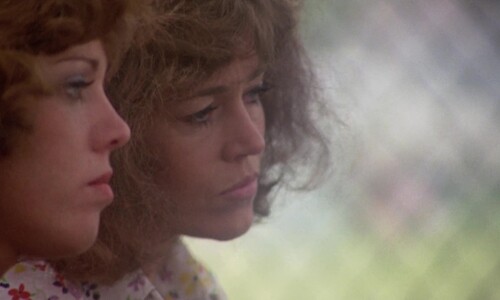
Realism and Politics: The seventies
Ah, the seventies! Today, Coming Home would be relegated to the fringes of filmmaking, but in 1978 it became a mainstream hit that went on to win Oscars for Fonda, Voight, and the script.
To be precise, the origins of the film have a fringe quality: this was a passion project for Fonda, which nobody wanted to produce. She had to find the investment, present the idea to several scriptwriters until Waldo Salt took it on. During the three-year-long pre-production process, everybody worked on spec. John Schlesinger, set to direct, begged off, with the now-famous line: "Vets and piss bags: you don't need a British fag for this one".
Hal Ashby, who came to replace him at the suggestion of DP Haskell Wexler, was a pot-smoking hippy, at home in the counter-culture, the kind of person who would not be welcome into corporate offices nowadays. Actually, he was the quintessential seventies director and it is somehow telling that his career lost momentum after 1979 (he died in 1988). Ashby and Wexler are responsible for the look of the film: the director uses his usual casual style, with great attention to detail. Hands, faces, an amputated leg, group dynamics (there's a particularly touching scene in which the vets play football riding their wheelchairs),
Ashby is always laid back: outbursts don't interest him, it is what surrounds the dramatic center of every scene; Ashby also likes to watch his characters do very little and has a fondness for loose, untidy compositions. Looking at some scenes in Coming Home, I kept on thinking how out of place Ashby would be in today's cinema.
As for Wexler, he came from a documentary background, and certainly, handheld camera is having a resurgence since the turn of the century. But watch closely: this is not emphatic, showy cinematography. Maybe it was the celluloid, but Wexler (like Zsigmond in the same decade) was wonderful at capturing textures and the uncontrived glow of objects and faces. Together, they make the film distinctive and very much of its time. Then Waldo Salt (who had a serious stroke before finalizing the script) lends the plot the anger of the anti-war movement he was deeply involved in.
"Hanoi Jane"
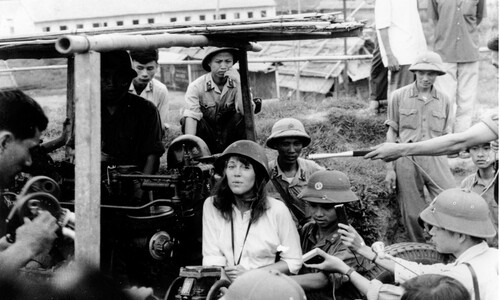
Fonda's voice
But it is ultimately Fonda's movie in ways that go far beyond performance. As a character, she is the quiet center of a storm, and it was the storm Fonda was obsessed with.
Yes, she had been to Hanoi and had been trapped in that infamous picture. She regretted the bad publicity the image of her atop a communist anti-aircraft gun had brought to the anti-war movement. But her intentions were good, and her worst sin may have been naiveté.
Her views (that the US involvement in Vietnam was unfair to Americans and morally wrong) are at the heart of Coming Home: the film follows the transformation of her character from a dull army wife into a liberated woman-activist, but what makes that change possible is her progressive awareness of how heartless the situation is.
By focusing on the treatment of returning vets, who are crowded into unsuitable conditions, who are not supported in their reinsertion in normal life, whose anger at what is happening receives arrogant, dismissive responses, the film makes clear the way the American government failed its responsibilities and continued fighting an essentially cruel war that did not need to be fought.
Even in Ashby's laid-back rhythms, the pain really comes through. In the film, Fonda is first discovered sitting down at a bar, the camera finds her as an afterthought, it is her husband we have been following. The harshness of Klute, the knowingness of Steelyard Blues is gone. This is a naive young wife with a conservative, straightened, hairdo, who just watches and is never really involved. Not even during sex with her husband: after he is done, she just stares blankly. Sex in a Fonda film is often a way to self-knowledge.
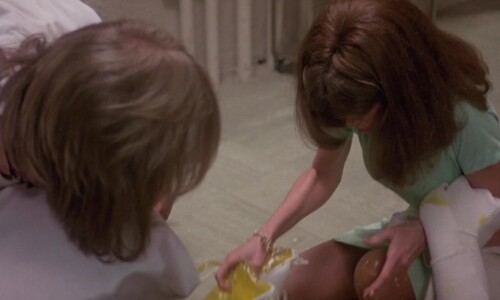
Fonda and sex
Linda Williams has acknowledged her importance in shaping sexual imagination into movies, referring in particular to her important sex scene in Coming Home. Later in the film, she has sex with Luke. This was an important moment, not just for the character, but, as all accounts show, also for the actress.
She researched the sexual lives of paraplegics and learned about difficulties for erection. She thought about her sex scene as an example of nonpenetrative sex, which would present an alternative view of masculinity, adding a feminist layer to Luke's character, and tried to convey her view to Hal Ashby. The director was not convinced. He thought ordinary penetrative sex would look so much better onscreen.
After what she calls in ther memoir "the penetration battle" with Ashby stubbornly sticking to his view, she boycotted the shooting of the scene so that in the final cut there is a suggestion that she climaxes through oral sex. Sex in this film is linked to other changes in her character, very well conveyed in an alert, detailed performance.
Her persona in the seventies had two sides, sexuality and politics, and they are perfectly realised here. We also see the gradual rise of a strong feminist conscience (it would take decades for Fonda to really acknowledge this and her Ted Turner years were certainly a detour).
It is true that it does not have the dramatics of They Shoot Horses or the determination of, say, Klute, but it does a lot with watchfulness: after all that is what the film is asking her to do. So there is a shy, girlish quality when she comes to visit Luke to his hospital room for the first time (she had had a crush on him at high school), and we can see how she really feels some excitement for this guy.
Her anger at the indifference towards returning vets on the side of the army wives is subtle but is used by Fonda as a turning point in her character. A sense of determination stays in her gestures and expressions from that moment. Then she stops straightening her hair and becomes more self-assured, something her husband resents during her trip to Hong Kong to meet him during leave.
And in the romance section of the film, we see a joy which is not just sexual: she has found out something about herself, about life. And her newfound knowledge also tells her that there is something very wrong in the way the government is dealing with the situation. Ashby explained that her husband Bob (Bruce Dern) is the really tragic character in the film, and his inner struggle at the end (in scenes apparently semi-improvised by the actors) is very well conveyed: Bob clings to notions of patriotism even if reality has been questioning his ideas, even if he feels humiliated and mortified at coming home due to an accident.
Jon Voight lobbied to play the paraplegic (in principle he had Dern's role) and then won an Oscar for his soulful performance. He is a man who has gone through hell, who has been disappointed in every ideal he used to have, and has survived through sheer force of will. You can see his rage, but he also is changed in her relationship with Sally.
Towards the end of the film, Sally completes her journey into political and emotional awareness, and this is celebrated with some luminous shots of Fonda. I have read reviewers sniggering at Fonda's Oscar win that year (her competition included Ingrid Bergman and Geraldine Page) but if performances can be compared, what Fonda achieved in this film against all odds was incomparable. Her choice to stand back and become a witness and project her views was historically relevant and became an example for people like Angelina Jolie, Emma Watson and other artists/ activists.
